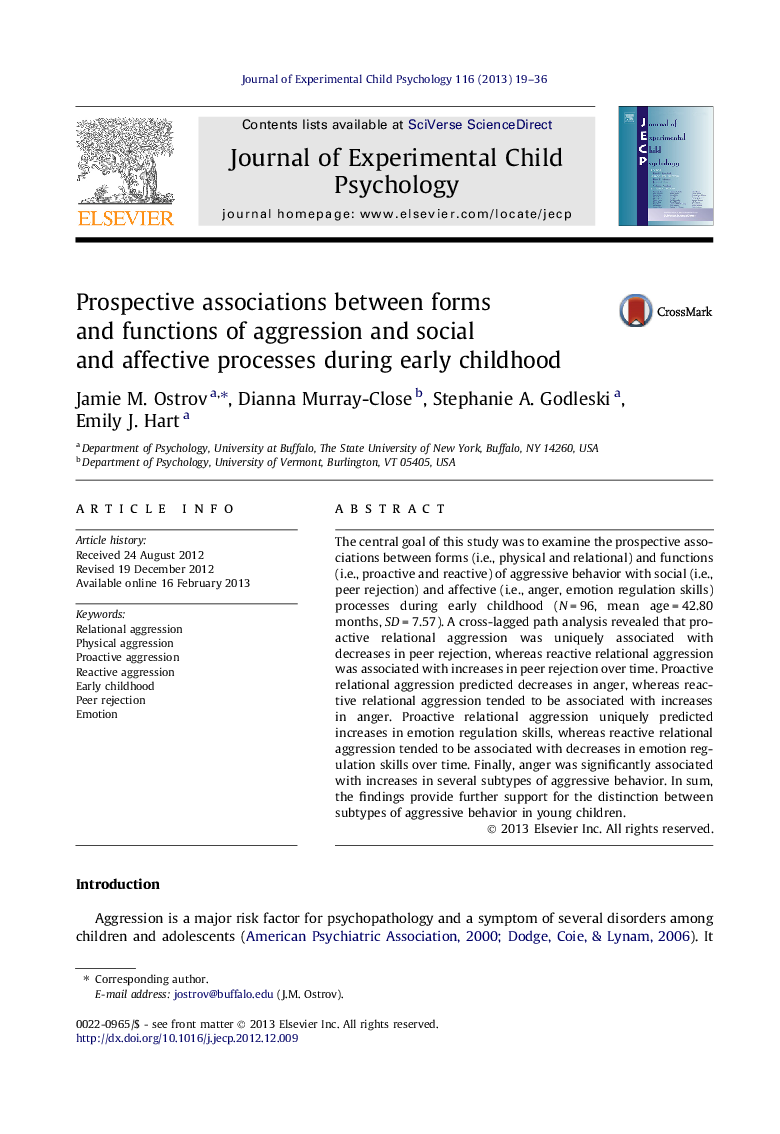| Article ID | Journal | Published Year | Pages | File Type |
|---|---|---|---|---|
| 918086 | Journal of Experimental Child Psychology | 2013 | 18 Pages |
The central goal of this study was to examine the prospective associations between forms (i.e., physical and relational) and functions (i.e., proactive and reactive) of aggressive behavior with social (i.e., peer rejection) and affective (i.e., anger, emotion regulation skills) processes during early childhood (N = 96, mean age = 42.80 months, SD = 7.57). A cross-lagged path analysis revealed that proactive relational aggression was uniquely associated with decreases in peer rejection, whereas reactive relational aggression was associated with increases in peer rejection over time. Proactive relational aggression predicted decreases in anger, whereas reactive relational aggression tended to be associated with increases in anger. Proactive relational aggression uniquely predicted increases in emotion regulation skills, whereas reactive relational aggression tended to be associated with decreases in emotion regulation skills over time. Finally, anger was significantly associated with increases in several subtypes of aggressive behavior. In sum, the findings provide further support for the distinction between subtypes of aggressive behavior in young children.
► Reactive relational aggression was associated with increases in peer rejection. ► Proactive relational aggression was associated with decreases in peer rejection. ► Proactive relational aggression predicted increases in emotion regulation skills. ► Reactive relational aggression tended to predict decreases in emotion regulation skills. ► Anger was significantly associated with increases in several subtypes of aggression.
